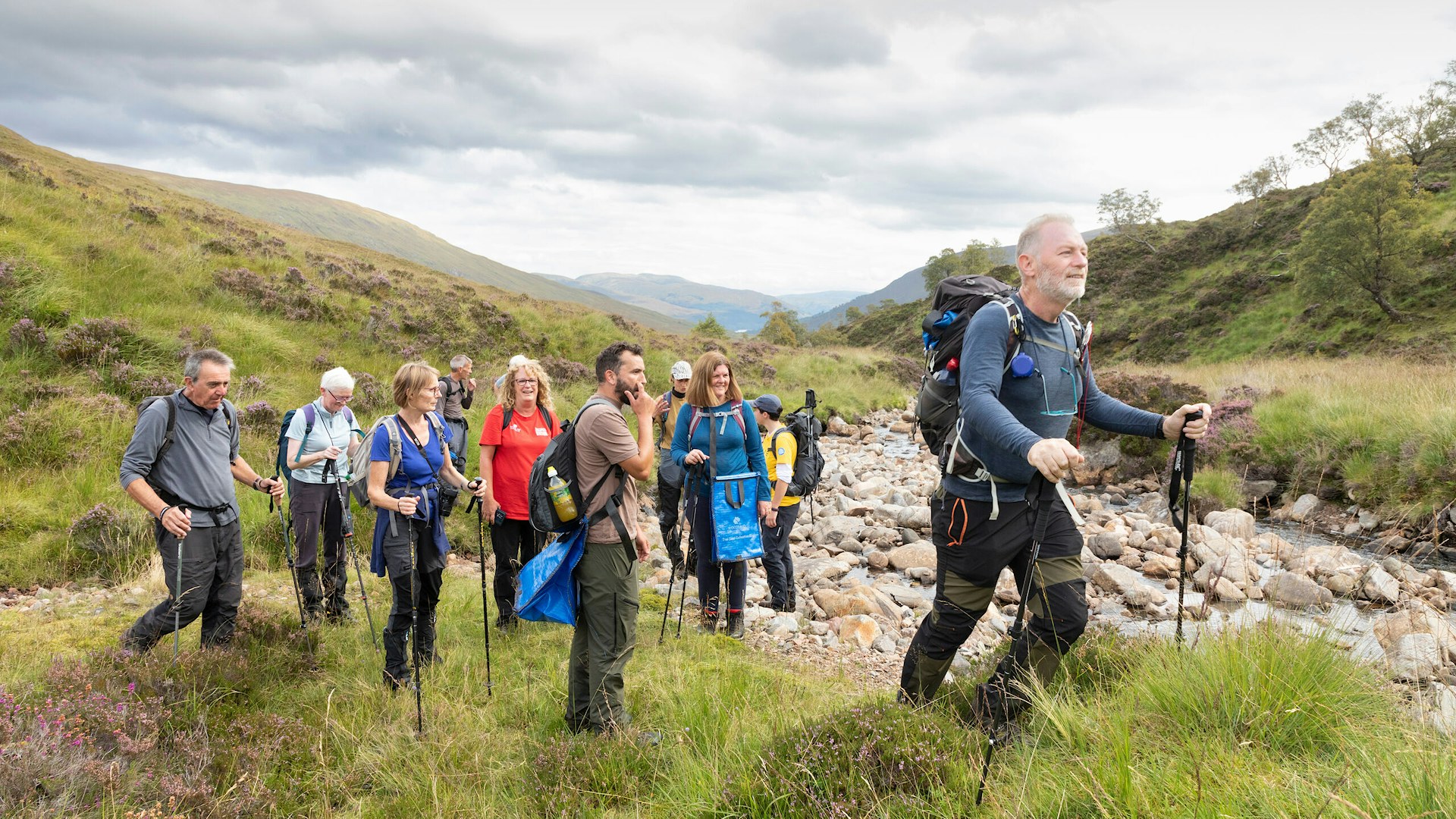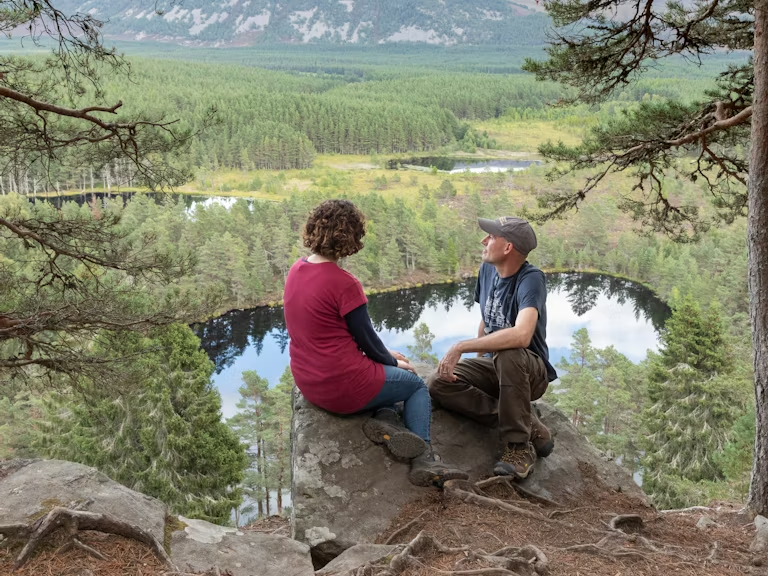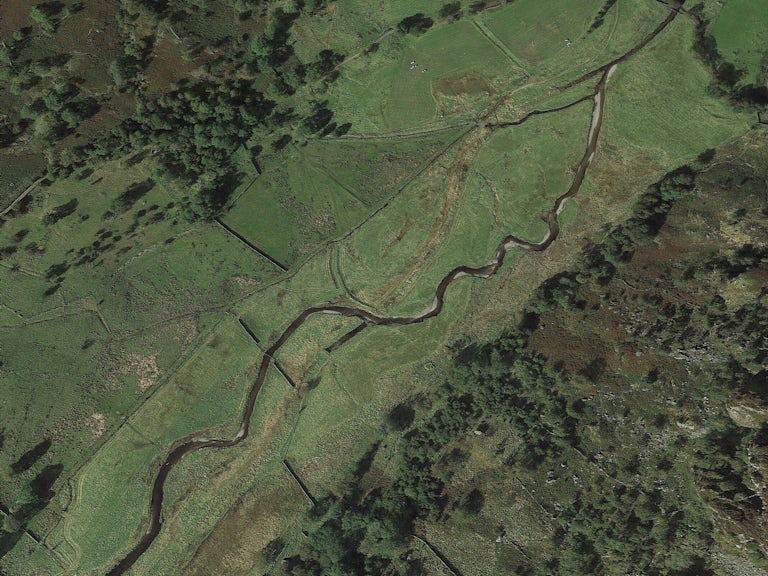Scatter seeds in everyday places: reclaiming the right to rewild
We want to see a future Scotland where participation in rewilding is a shared right; a shared responsibility and a shared joy, says Scotland Advocacy Coordinator Charlotte Maddix. She unpacks our new briefing paper on the relationship between land reform and rewilding in Scotland.
Title taken from ‘Are We Listening?’ by The People of Scotland, curated by Makar Kathleen Jamie

Published 11/11/2024
With the escalation of climate breakdown and biodiversity collapse, we face an uncertain and unstable future. We can be sure that we will live through more flooding, extreme weather events, warming seas and lochs, pests, diseases, infrastructure damage, food supply and eco-anxiety – fuelled by the continued decline of our natural world.
Scotland is already one of the world’s most nature-depleted countries [1]. It’s also a place where just a few hundred people own half of the country’s privately owned land. But a growing number of communities across Scotland want to see the natural world around them restored. For some, this means taking ownership of land with ecological restoration as an aim. Elsewhere, where direct ownership of land is not possible or not wanted, it means meaningful engagement in land use change, such as rewilding.
With our partners in the Scottish Rewilding Alliance, Rewilding Britain wants to see Scotland become a Rewilding Nation – where the natural world is healing, where biodiversity is recovering, where people feel connected to nature and where everyone is involved in the mission to create a greener, fairer Scotland. The Land Reform Bill that’s currently before the Scottish Parliament is one opportunity that could help make this vision a reality. But a fresh approach is needed to address the nature emergency.
Sign the Rewilding Nation Charter
We’re calling on everyone who shares our hopes and vision to urge the Scottish Government to declare Scotland the world’s first Rewilding Nation and commit to nature recovery across 30% of our land and seas.
To support these conversations Rewilding Britain commissioned the University of the Highlands and the Islands’ Centre for Mountain Studies to write a briefing paper looking at the intersections between the land reform agenda and rewilding in Scotland. The Centre for Mountain Studies collated readily available information to help understand whether community ownership or management is associated with a shift towards rewilding or ecological restoration objectives, and whether those objectives lead to outcomes that register on the ‘spectrum’ of rewilding.
Our Rewilding Journeys toolkit, which outlines the rewilding ‘spectrum’, was used by the Centre for Mountain Studies to understand and communicate the range of relevant ecological actions and outcomes carried out by different groups.
This briefing paper suggests that policy improvements and support for innovative governance models could enhance the contribution of land reform to rewilding.
We hope it will spark conversations about how the latest land reform legislation must help empower more people to tackle the nature and climate emergencies.
Scotland’s National Poet — Makar — composed poems from lines sent in by members of the Scottish public. The third poem, Are We Listening, speaks to the joy we can find in rewilding together.
“Let’s scatter seeds in everyday places.
every street. Stand under the tree
and know another hand planted it.”
- Walton, P., O’Brien, D., Smart, J., Burns, F., Basset, D., BradferLawrence, T., Foster, S., James, B. D., Mancini, F., Mordue, S., Pakeman, R. J., Pescott, O. L., Simkin, J., Stanbury, A. J., Towers, M. (2023). State of Nature Scotland 2023. The State of Nature Partnership.
The Scotland land reform briefing paper
Our latest briefing paper, written by the Centre for Mountain Studies, looks at the relationship between rewilding and land reform in Scotland from a new perspective.



